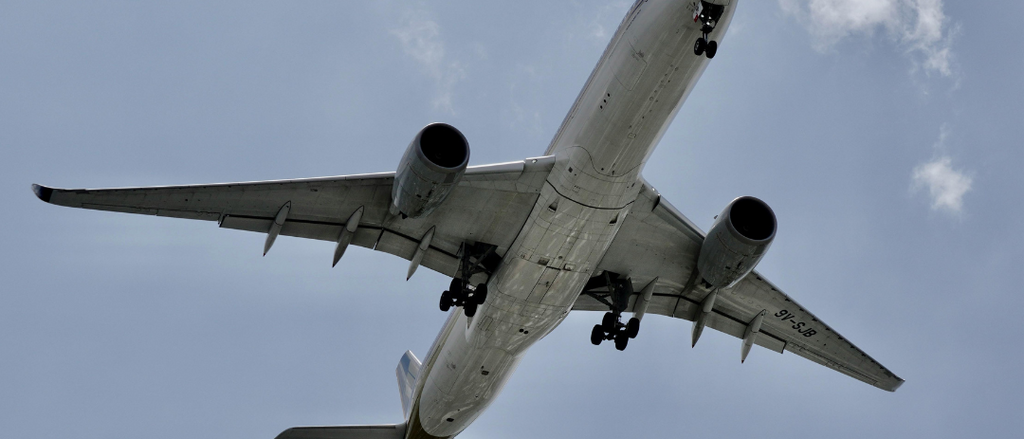
Fit to Fly: Everything you need to know
Friday, October 24, 2025
What is a fit to fly certificate?
A fit to fly certificate is a medical document stating that an individual with a medical condition is allowed to fly. The term “Fit to fly” directly applies to a person’s physical health, and whether their injuries are compatible with flying. Injured individuals therefore go to their medical practitioners to obtain confirmation that they can board a plane in their condition.
Fit to fly certificates can depend on the countries involved in the trip, some having specific requirements, or stricter rules. Naturally, the medical condition also plays a large role in determining whether a fit to fly is needed.
Why do I need a fit to fly?
As mentioned above, a fit to fly is a necessary document for certain medical conditions to confirm that you can fly. Some injuries need to be approved for flying to ensure that the physical stress of flying will not negatively impact your injury. Therefore, consulting your doctor before a flight is a good idea if you are at risk of worsening your condition.
In which situation do I need a fit to fly?
Different fit-to-fly certificates exist for different situations. Here is a breakdown:
- COVID-19: During the pandemic, it was mandatory to have a negative test to board a plane. This was in and of itself a fit-to-fly certificate. The vaccine cards could also be applied as such. This also applies to SARS and any related contagious diseases.
- Previous health conditions:
Heart disease:
According to the British Heart Foundation, most people with a heart or circulatory disease can safely travel by air. However, in certain cases, a fit to fly may be required by the airline. Always consult your doctor before planning a trip if you are in this situation!
Asthma or lung problems:
In most cases, those with lung issues can safely travel, however due to the changing air pressure and reduced oxygen in aircrafts, it is always advisable to consult your general practitioner beforehand to make sure everything is alright.
Epilepsy or seizures:
Similarly to lung conditions, most people with epilepsy or seizures can fly without any issues. However, if you have uncontrolled epilepsy, you will require a fit to fly certificate from your doctor. Moreover, you need to be seizure-free 24 hours before your flight to be deemed fit to fly.
- Special trips: Some specific vacations require you to be medically cleared before you are allowed to travel, such as cruises or safaris, going to high-altitude destinations, such as mountains, or islands that have limited access to hospitals.
- Recent hospitalisation: If you have been recently hospitalised, you will require a fit to fly certificate from your medical practitioner. This includes recovery from an operation, or more generally recently discharged from a hospital.
Do I need a fit to fly when pregnant?
You will need a fit to fly document when pregnant between weeks 28 and 36. Before this, you should be clear to travel without a special certification that you are healthy enough to fly. However, after this (as of 36 weeks), or as soon as you are within a month of your due date, most airlines will not let you fly.
Check out our previous blog about our tips and tricks for while travelling pregnant here!
Variance in pregnancy fit to fly:
Depending on your type of pregnancy, the fit to fly may vary. If you are pregnant with a single child and it is an uncomplicated pregnancy, you are able to fly up to 36 weeks, with a fit to fly needed from 28 weeks onwards. This certificate needs to be no older than 7 days before your travel date. For a multiple, uncomplicated pregnancy, the fit to fly certificate applies from 32 weeks onwards, and cannot be dated more than 3 days prior to your departure date. Finally, if your pregnancy is complicated, it is decided upon a case by case basis, but the standard is that no air travel is permitted beyond 32 weeks, and a fit to fly dated no older than 3 days. These certificates must be issued by your treating gynecologist or midwife.
Your fit to fly certificate should include your weeks of pregnancy, your expected delivery date, complications if applies, and fitness of travel.
What is involved in getting a fit to fly?
Getting this document involves a medical evaluation from your health practitioner, which includes a review of your medical history and your current physical health status. This examination can include several elements, such as a physical exam, or more specific tests such as blood tests, blood pressure tests, and sometimes a hypoxic challenge test. A hypoxic challenge test (or a flight assessment) involves simulating a plane’s low oxygen levels, testing how the body reacts to the environment, in particular, testing their blood oxygen levels. This test is usually performed on those who have a lung condition, to ensure that breathing will not be a problem in the plane.
How to get a fit to fly?
To obtain a fit to fly, you must consult your doctor and be transparent about your previous medical history. It is always important to contact your airline, as they may have specific requirements. Some airlines have their own fit to fly certificate that the doctor signs off on. This is called a MEDIF (Medical Information) form. This form is to be filled out if the passenger needs specific care, such as oxygen on board or a stretcher. This allows for the airline to accommodate the passenger’s needs beforehand, without having to make last-minute adjustments on-board.
It is also important to note that the captain has the final say on whether or not you can board the aircraft. If your condition seems worse than expected, the captain has the right to refuse you.
When to submit your certification?
You should submit your fit to fly certificate to the airline 48 hours before your flight, however different airlines have their own policies, so it is best to check their specific rules. Have your certificate ready before boarding, as they may check you for it before you get on the flight to ensure that everything is in order.
Fit to fly: cost?
It is good to keep in mind that a fit to fly certificate is not free, it may come at a cost. The cost ranges depending on what type of fit to fly you need, and whether your health practitioners are in the public or private healthcare sector. But on average, such a certificate costs anywhere between £13 to over £69, in the UK. This variance in price applies to the rest of Europe as well, subject to small changes.
Does a fit to fly certificate expire?
Yes, these fit to fly certificates do expire. Their longevity depends on your medical condition and the airline’s requirements. Typically, their validity lasts between 7 and 30 days before needing a renewal. As medical conditions evolve quickly, it is important to keep this form up to date if you need to travel frequently, but have an underlying medical condition.
It is important to obtain this certificate as close to your departure date as possible, since the certificate covers your immediate condition, it does not evolve with your health. If you have a long-term condition, you may need a new certificate for every trip you make.
Factors that influence the validity of your certificate:
- The medical condition: the type of condition and its stability play a large role in determining the timespan of validity. If your condition is chronic, naturally the validity will be longer than an injury that has a limited healing time.
- Differing airlines: different airlines have different policies on how they handle fit to fly certificates and their validity periods. Always contact your airline and check with them before going on your trip.
- Destination requirements: certain countries have different requirements in terms of validity for fit to fly certificates. For example, during the COVID-19 peak, certain destinations had different requirements in terms of vaccination passes.
- Type of certificate: Depending on what your condition is, different certificates can be issued. This then frames the validity period of your certificate. For example, the validity of a pregnancy certificate would be different than a negative COVID-19 test period.
Is a fit to fly mandatory?
Technically, you don’t need a fit to fly to travel. You are not required by law to have one when travelling with a medical condition, unless you are 28 or more weeks pregnant. However, it is always advisable as travelling without one means putting yourself at risk and creating a risk for the airline. If you encounter issues on your flight due to your condition, having a certificate showing what is wrong will speed up the medical procedure as the crew will already be aware of your condition.
It is not mandatory for airlines to check these fit to fly certificates, but sometimes they do check if you have the form if you look unwell, and may refuse your boarding.
Ultimately, a fit to fly is not mandatory, but it is strongly recommended as it gives you peace of mind in terms of confirming your health for your flight. It is a higher risk for you to not get a fit to fly.
Conclusion: Fit to fly certificate
To conclude, a fit to fly certificate is a medical document confirming that despite certain medical conditions, you are cleared to fly. This certificate can be obtained through your medical practitioner, and undergoing a few tests. Depending on what condition you have, different validity periods apply, and different types of certificates are required. For example, if you are pregnant, you will need a fit-to-fly certificate anywhere between 28 and 36 weeks of pregnancy. This certificate cannot be older than 7 days at the time of your departure.
Ultimately, this certificate is necessary if you risk encountering any health-related issues during the flight. You get the certificate from your medical practitioner and cross-check with the airline, as they may need to arrange based on your case, such as providing oxygen or a stretcher.
It is also important to get the certificate as close to your departure date as possible to avoid complications with validity, and that you have a smooth journey!
Experiencing flight delays or cancellations?
Under EU and UK regulations, you may be entitled to compensation of up to €600 per passenger if your flight is delayed by more than 3 hours or cancelled less than 14 days before departure, as long as the disruption was the airline’s responsibility (and not due to extraordinary circumstances such as severe weather). You have up to 6 years to submit your claim.
Would you like to see if your flight qualifies?



Did you like this content ?
Thanks you made our day!
Help us be better!
Well received, thanks!